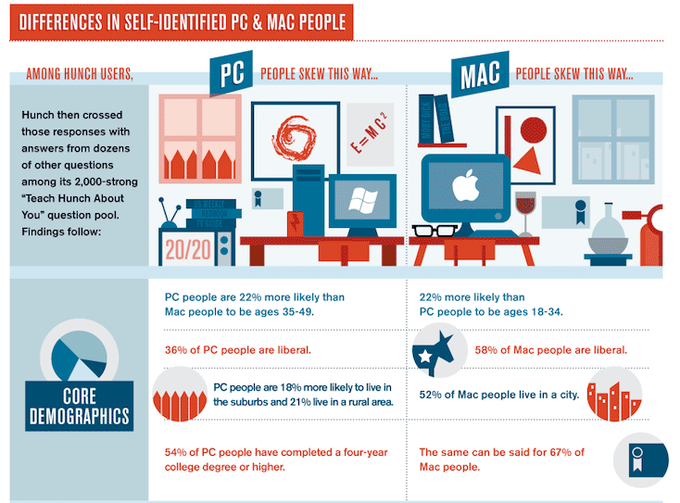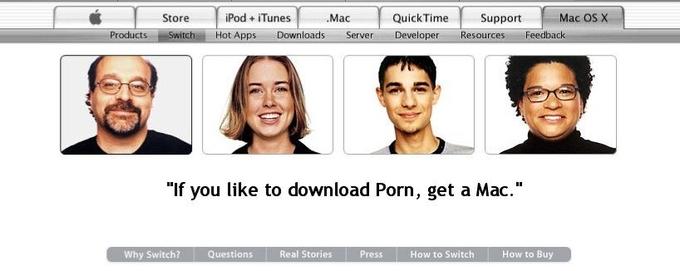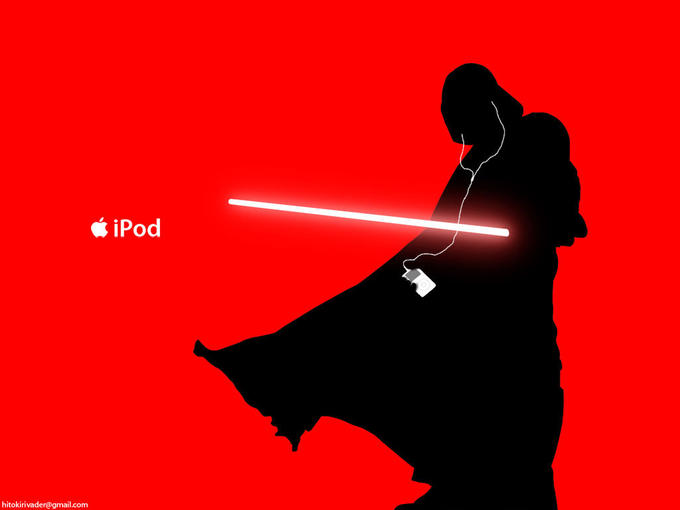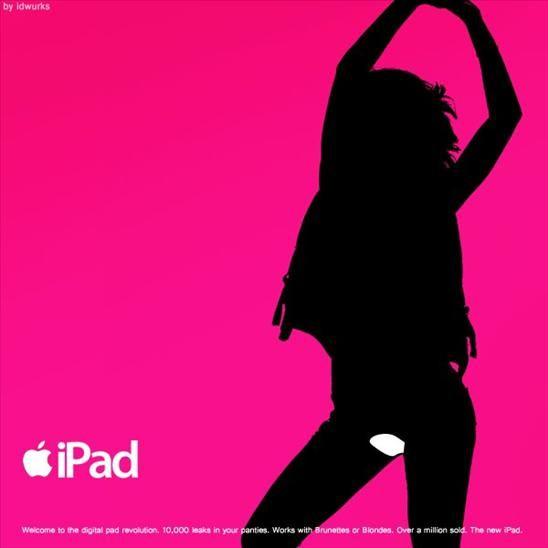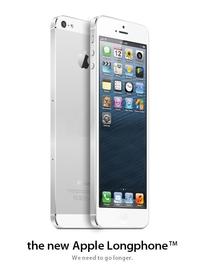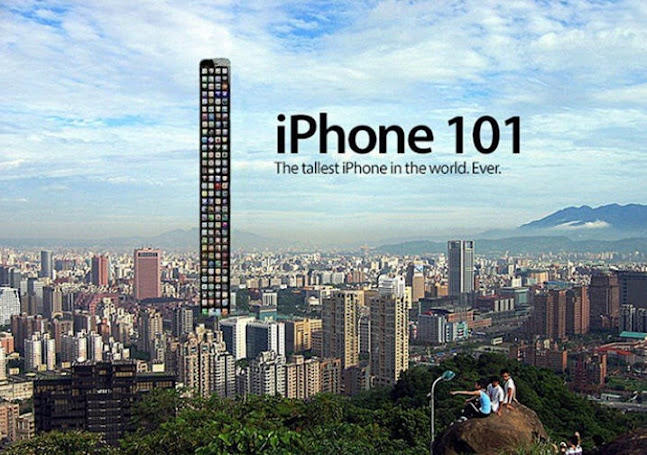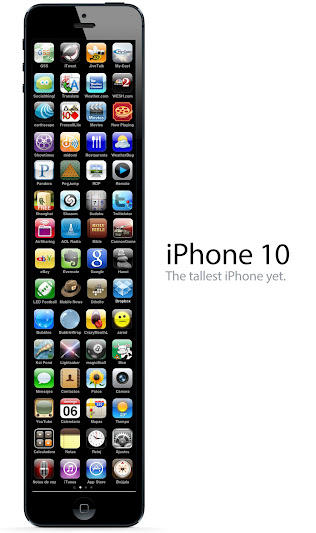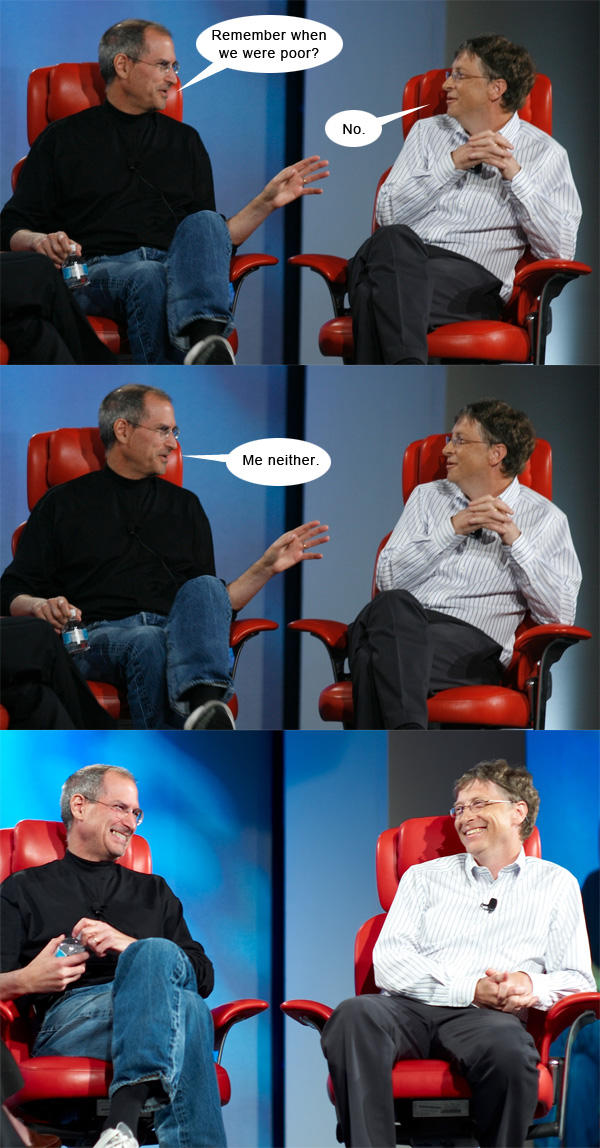About
Apple Inc. is an American consumer electronics company[1] known for pioneering the Macintosh personal computer in the late 1980s and early 1990s, as well as the portable MP3 player in the early 2000s. It is perhaps best known for its “iProducts,” such as the iPod and iPhone, which have become so ubiquitous within the Western culture that the company has developed an enormous following referred to as the Cult of Mac by some observers.[3] With the commercial success of iProducts, the company quickly grew into the largest publicly-traded corporation in the world and the largest technology company in the world, both by profit and revenue[2]. Despite this, the corporation has been criticized for unethical labor, business, legal, and environmental practices.[2]
Online History
Apple was established on April 1st, 1976 by Steve Jobs, Steve Wozniak and Ronald Wayne to sell the Apple I personal computer kit and the company was formally incorporated on January 3rd, 1977. In the following years, Apple released its second and third generation of the personal computer, although they were met by lukewarm reception. Beginning in the early 1980s, Apple’s personal computer line was succeeded by Lisa and the Macintosh products.
iProducts
On August 15th, 1998, Apple charted a new era in the company’s history with the release of iMac, a new line of personal computers. Apple declared the “i” in iMac to stand for “Internet” and also representative of the product’s focus as a personal device (‘i’ for “individual”). In the following years, Apple purchased a number of software companies to build its consumer-oriented digital production applications, including iMovie, Final Cut Pro and iPhoto among others. On October 23rd, 2001, Apple unveiled the portable digital audio player known as iPod, which became the company’s most commercially successful product with over 100 million units sold within six years.
- August 15th, 1998: iMac G3 released
- July 19th, 2000: Power Macintosh G4 Cube
- September 13th, 2000: iBook released
- October 23rd, 2001: iPod released
- January 6th, 2004: iPod Mini released
- January 11th, 2005: Mac Mini released
- January 11th, 2005: iPod Shuffle released
- September 7th, 2005: iPod Nano released
- February 14th, 2006: MacBook Pro released
- March 21st, 2007: Apple TV released
- June 29th, 2007: iPhone released
- September 5th, 2007: iPod Touch released
- January 15th, 2008: MacBook Air released
- April 3rd, 2010: iPad released
Fandom
Throughout the 2000s, Apple engaged in a series of highly successful marketing campaigns for their new lines of iMac personal computers and iPod MP3 players. That, plus the widespread popularity of the products, provided Apple with a devoted consumer base who jump at the opportunity to buy the next in the line of products. Over the years, this following has become extremely widespread, and the fans have become increasingly virulent in their quest for the latest Apple products. This has resulted in very long lines at Apple stores during product launches, as well as general hype and hysteria surrounding the company’s announcements of new products. The following has been likened to a religion or a cult by outside observers. BBC journalist Alex Riley, reporting on the opening of a new Apple Store in Covent Garden, London wrote the following:
"The scenes I witnessed at the opening of the new Apple store […] were more like an evangelical prayer meeting than a chance to buy a phone or a laptop.
[…]
“And what did those customers – some who’d travelled from as far away as the US and China and slept on the pavement for the privilege – find when they finally got inside?
“Well, all the same stuff as in the Apple store half a mile away on Regent Street. No special offers, no free gifts (a few t-shirts were handed out), no exclusive products. Now that’s devotion.” [4]
The Reality Distortion Field
Apple’s method of announcing and presenting their new products to the general public through keynote speeches has been instrumental in the development of its following. The presentations were characterized by the charisma of the late CEO Steve Jobs, along with Apple’s aggressive marketing, and were extremely successful about building hype for the next new product. This has been termed a “reality distortion field,”[5] referring to how, during the presentation, the Jobs’ charisma was so forceful that the audience was essentially mesmerized, and would follow his every word. Thus, Jobs became the idol of the ‘cult’[6]. This term has since been applied to other charismatic speakers, such as Bill Clinton.[5]
The Mac vs. PC Debate
A frequent debate amongst internet users, some of whom may align themselves with the Apple fandom, is which is the better platform: Mac or PC/Windows. Arguments often get heated, and Linux proponents are often excluded entirely. PC proponents point to the limited customizability of both Apple’s software and hardware, and the lack of major gaming platforms (although this is beginning to change), while Mac proponents point out frequent unreliability of PCs, as well as their proclivity for attracting computer viruses.
Marketing-Related Memes
Apple / Mac Switch Spoofs
Apple / Mac Switch Spoofs are a series of spoof images and videos surrounding an advertising campaign by Apple (then Apple Computer) in 2002. The campaign showed ‘real people’ who had decided to switch from using a Windows-based computer to a Macintosh-based computer, listing their reasons. This was picked up upon by sites such as YTMND, and gained such popularity that some well-known actors such as Will Ferrell created their own spoof videos.
iPod Ad Spoofs / Parodies
iPod Ad Spoofs / Parodies refers to a series of parody images created about Apple’s distinctive marketing campaign for the iPod, showing black silhouettes with white iPods superimposed over colored backgrounds. The style of the ad is highly exploitable, and many examples have been posted across the internet.
Mac vs. PC Ad Campaign
Mac vs. PC is the name of another marketing campaign by Apple, begun in 2006. It compared a stereotypical, middle-aged, straight-edge businessman – the “average PC user” – with a young, hip, artist-type – the “average Mac user”. The ads detailed the supposed shortcomings of PCs, and why consumers should purchase Macs instead. The ad campaign further fuelled the heated Mac vs. PC debate, ever-present with contemporary youth. It has been parodied many times, usually with videos titled “X vs. Y” taking a similar format to the ads.
Product-Related Memes
Many of the internet memes related to the Apple products are centered around the iPhone and iPad.
iPad Spoofing
iPad Spoofing refers to the public reaction to the announcement of Apple’s first tablet, the iPad, in 2010. The reaction was particularly disdainful on 4chan’s /v/ board. Many focused on how the product appeared to be nothing more than a larger version of the already-released iPhone, except without the functionality of a telephone. Others focused on the name iPad itself (see above), in relating it to a feminine hygiene product. In fact, the comedy TV show MAD TV created a parody commercial for the ‘iPad’ feminine hygiene product three years before the tablet’s release[7].
iPhone Whale
The iPhone Whale is the name given to an ad-hoc emoticon found within the iPhone’s iChat app. A screenshot of the whale was spread around Tumblr and Reddit, and has spawned many derivatives. It has become so widespread that a Chinese company is producing iPhone Whale pillows.
iPhone 4 Death Grip
The iPhone 4 Death Grip refers to a design fault within the iPhone 4, by which the phone’s antenna was blocked from receiving a signal as users held the phone in their hands. It was seen as a catastrophic mistake by tech experts, but it did not dampen the product’s explosive popularity. It has been the subject of many creative photoshoppings.
Shit That Siri Says
Shit That Siri Says is an expression that humorously refers to unusual responses made by Apple’s voice-activated command program, Siri, which was introduced with the iPhone 4S. Sometimes the responses can be due to glitches within the program, but more often or not, they are due to the fact that Siri was programmed to have an attitude.
iPhone 5’s Extended Height
While the release of iPhone 5 in September 2012 has been regarded as a commercial success (with more than two million units pre-ordered within the first 24 hours), the phone garnered mixed reviews from the tech news blogosphere, many of whom described the fifth generation model of the smartphone device as “boring.” Meanwhile, others on 4chan, Tumblr and Twitter began commentating on the slightly longer dimension of the device, who dubbed iPhone 5 with the nickname “LongPhone” through photoshopped images and single topic blogs.
Other Apple-Related Memes
Steve Jobs / Bill Gates Comic
The Steve Jobs / Bill Gates Comic is an exploitable comic series that depicts a conversation between Apple’s late CEO Steve Jobs and Microsoft’s chairman Bill Gates. The comics often depict the somewhat acrimonious relationship between the two and their companies, much in the same vein as the Mac vs. PC parodies (see above).
Search Interest
External References
[2] Wikipedia – Apple Inc..
[3] Wikipedia – The Cult of Mac
[4]BBC News – Superbrands’ success fuelled by sex, religion and gossip
[5] Wikipedia – Reality distortion field
[6] Wikipedia – Criticism of Apple Inc..
[7] YouTube – Mad Tv – iPad
[8] MacRumors – longphone 5???
[9] Imgur – LongPhone Parodies
[10] HyperVocal – The Best of the ‘Longphone’ Meme

